QuestionHello Ms. Krempels,
I noticed that someone else had a similar problem with their bunny. I have a 2 year old male who has completely stopped drinking water and will no longer eat his pellets. I make him a salad and put all sorts of greens with a few pieces of pineapple and a slice of strawberry and old fashioned oats. I try sneaking in a few pellets too. He sifts through the whole dish and picks out all the greens and won't touch anything else. He hasn't drank water for over a week and I have been giving him syringe feedings of water and critical care twice a day because he is drastically losing weight but other than that is fine. He runs around, uses the litter pan (although much less), he is not in pain just skinnier than usual. Anyway I took him to the animal hospital to see one of the vets from the HRS list. I normally don't go there but I was so worried about him. They took blood, fecal samples, X-rays of his teeth and did an exam. They found absolutely nothing wrong with him. They told me to just keep feeding him greens but what about the water? It is just to strange to me. The vet suggested that due to the economy that the food companies are changing the contents of the feed. He said that they are only required to use certain ingredients and that they will often change some of the not so useful ingredients to keep the cost down. I was using just standard pellets so I tried switching to blue seal and he won't that either. I am not convinced that it is the feed but I thought it was interesting to see that I am not the only one with the same problem.
Ok so now my second rabbit is just 3 months old. She went to the clinic also. She had mucous in her fecal pellets. The mucous was in her normal droppings and not her cecotropes. Other than the mucous she had no other signs of mucoid enteritis. The vet did all the stool sample tests and did the float test for coccidia. He said there is absolutely nothing wrong with her. She gets a proper diet except that she actually eats the pellets along with the veggies and the hay. Again he links it back to the feed. Her flesh condition is fine, she has a good appetite and she does not have excessive thirst like a typical rabbit with mucoid enteritis.
My question is do you think it is possible that since grains and hay usually come from certain regions that there are some changes in the content of the feed? My friend who lives 6 hours away from me and doesn't use the same brand of feed also has younger rabbits with the mucous in their hard droppings. It is just very scary to think that a minor adjustment in the production of feed could possibly cause so many problems.
I was just curious of your opinion.
Sincerely,
Ashlie
AnswerDear Ashlie,
Radiographs (x rays) of the teeth will *not* reveal molar spurs, which can be quite small. But those small spurs can be extremely painful and bothersome, and the signs your rabbit is showing are *classic* signs of dental pain, typically from molar spurs. Please read:
www.bio.miami.edu/hare/dental.html
and find a more experienced rabbit vet here:
www.rabbit.org/vets
who knows that the only way to see molar spurs is by *visual inspection* of the oral cavity--not radiographs! Those won't help at all in virtually all cases of molar spurs, which usually point sideways and won't be easily seen on a radiograph.
Even a very *small* spur can make a very sensitive bunny stop eating. So be *sure* your vet is very experienced with dental exams and knows what to look for. I can't tell you how many times this gets overlooked, and it *is* the cause of the problems.
Ummmm...mucus in the stool is a sign of mucoid enteritis, though it might be very mild. Enteritis isn't a disease in and of itself. It's a symptom of other things.
How long has she had mucus in the stool? If this has been going on for several days, she needs to be examined by a more experienced rabbit vet, too, to check for other problems that could cause GI slowdown and enteritis.
It is possible that the feed may contain impurities, or even very low levels of mycotoxins (from parasitic fungi that reside in the living alfalfa plant). To reduce this risk, use only *grass* hay (not alfalfa), and be sure it is very fresh and of high quality, such as from Oxbow Hay Company (www.oxbowhay.com) or American Pet Diner (www.americanpetdiner.com), or if you're lucky enough to have a local grower, you can buy it directly from the farmer. Timothy is best.
The rest of the diet must also be healthy and balanced, with few starches or sugary treats. You can compare what your bunnies are getting with this list, and see if things could be changed to improve their GI health:
www.bio.miami.edu/hare/diet.html
I hope this helps!
Dana

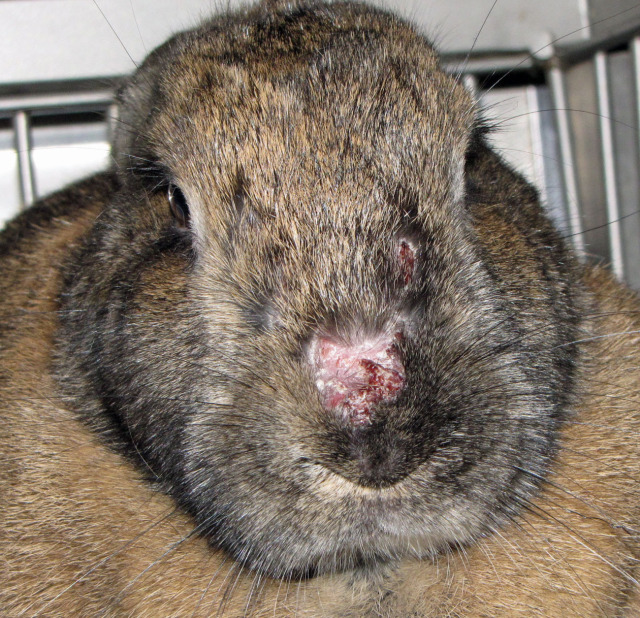 Persistent scabby nose
QuestionQUESTION: I volunteer at an animal shelter givi
Persistent scabby nose
QuestionQUESTION: I volunteer at an animal shelter givi
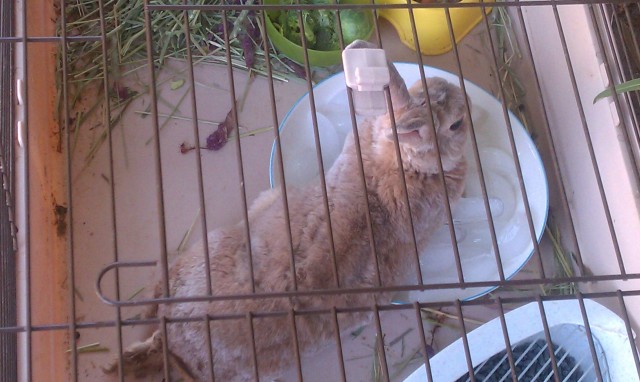 Heat and water
Question
frozen rabbit
I live in Arizona and recently a
Heat and water
Question
frozen rabbit
I live in Arizona and recently a
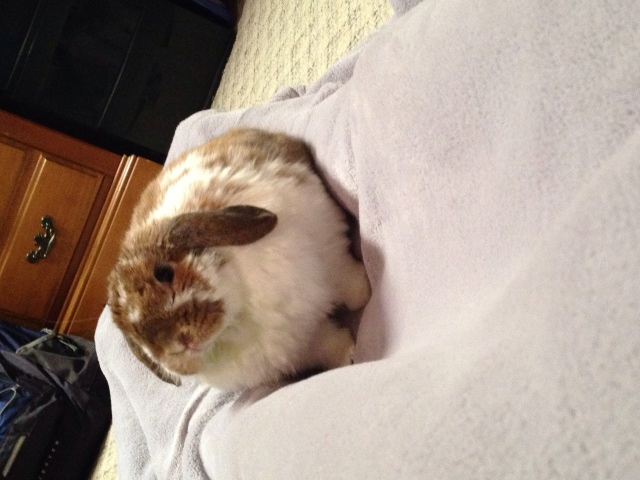 Overweight, picky holland lop doesnt eat hay/special diet
QuestionOlly
QUESTION: I have a male, neutered,
Overweight, picky holland lop doesnt eat hay/special diet
QuestionOlly
QUESTION: I have a male, neutered,
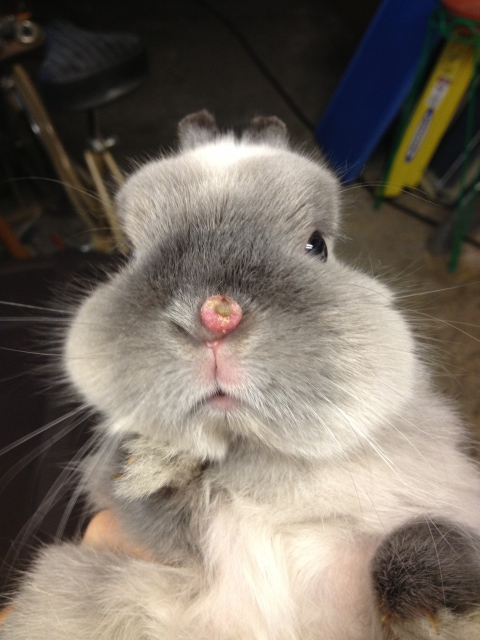 Bump on my rabbits nose
Question
bump on nose bump on nose 2
Breed
Bump on my rabbits nose
Question
bump on nose bump on nose 2
Breed
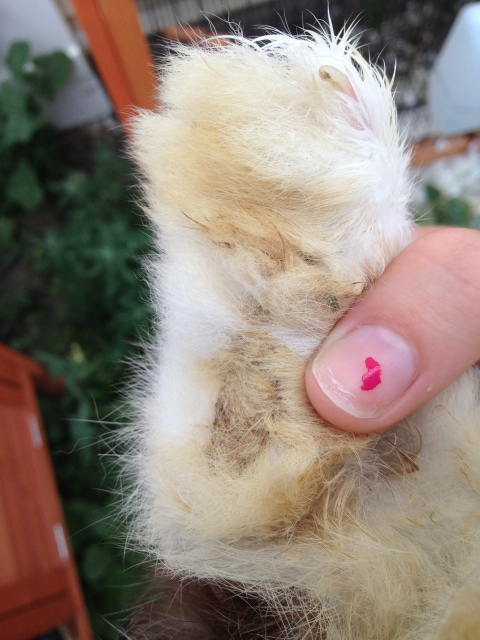 Sore Hock foot HELP
Question
foot
Hey guys,
I bought this rabbit in
Sore Hock foot HELP
Question
foot
Hey guys,
I bought this rabbit in